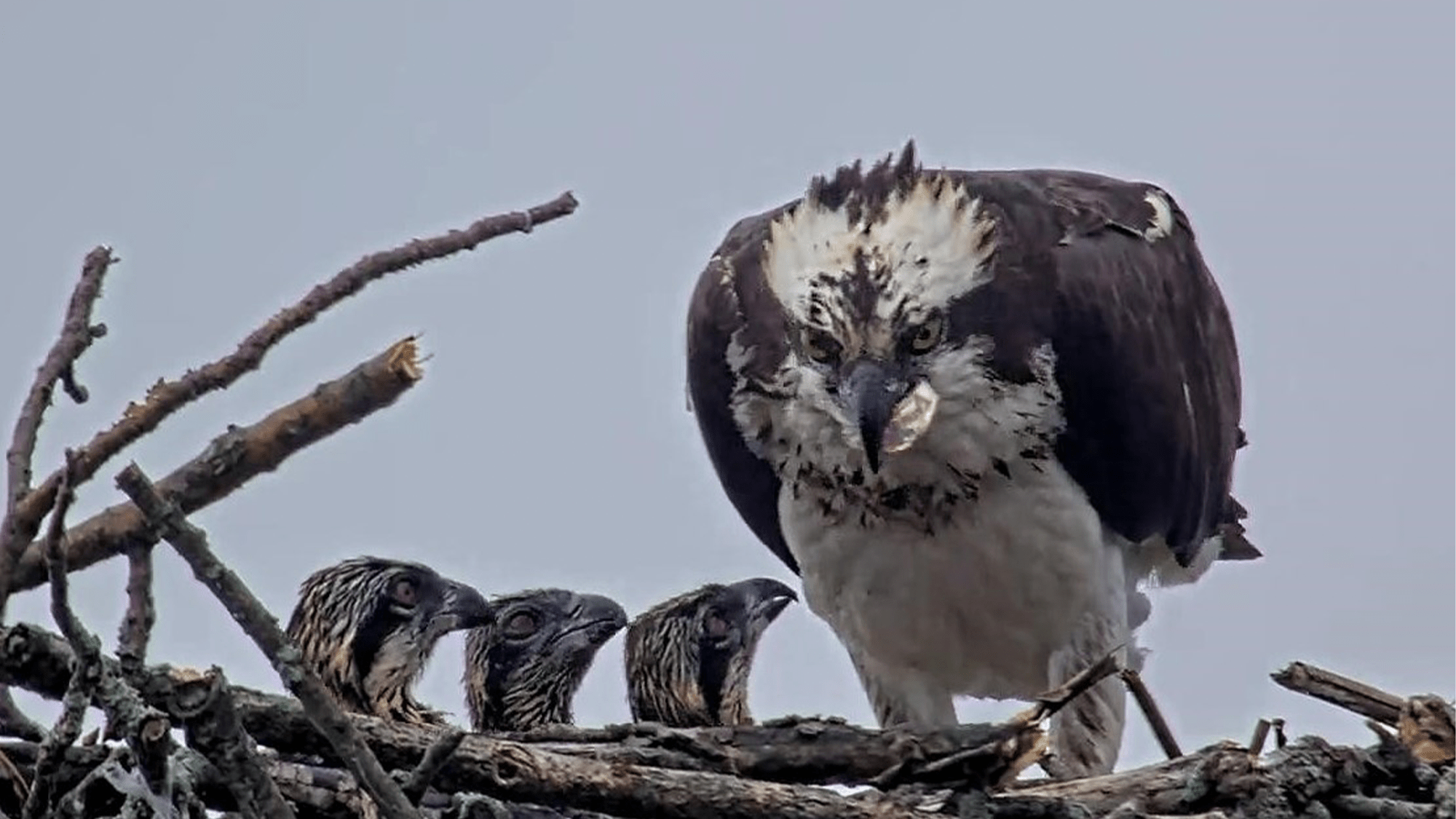Three osprey chicks hatch in 500-pound steel nest boxes
Operation Osprey is officially a success. Three osprey chicks are now sitting high atop the Bear Mountain Bridge overlooking the scenic and sturgeon-stocked Hudson River in New York’s Hudson Valley.

These three new chicks were born in a nest constructed just for them with the help of some humans from the New York State Bridge Authority. The steel nesting boxes were installed this year to keep the birds, eggs, and motorists safe and allow the osprey to stay in their preferred nesting spot on top of the bridge.
“We noticed that two years ago at the Bear Mountain Bridge, [that] they started building nests on top of the tower,” Craig Gardner, manager of maintenance for the New York State Bridge Authority, told Popular Science in April. “It’s not really an ideal spot for us, so we would go up and try to encourage them to go someplace else. But then last year, before we could get the nest, they laid eggs. So then we stayed away from the nest.”

Roughly 20,000 vehicles cross the Bear Mountain Bridge every day and the osprey nests themselves are about 250 feet high, so any falling debris can cause car accidents. Bridge Authority workers typically try to encourage birds to nest on the lower spans, closer to the river and away from cars. But these birds wouldn’t budge and appear to really like their perch high above the New York fjord.
In 2024, the osprey clutch successfully hatched and the chicks remained in the nest for most of the year. For this year, safety concerns prompted the team at the Bridge Authority to build the special steel boxes to keep the residents of any nests built this year safe.

“We took it up in components and assembled it on the top of the tower,” says Gardner. “They [the birds] were back there as soon as we left, rearranging the sticks and establishing their nest.”
When all weighed together, the engineers took about 500 pounds of steel 350 feet in the air to install the nest boxes. The chicks are expected to remain there for several months.
[ Related: To protect birds and motorists, engineers build a steel nest box on bridge. ]
Thanks to ongoing conservation efforts in the Hudson River and the surrounding area, bald eagles, peregrine falcons, ospreys–and the fish that they need to survive–have seen a major recovery. The osprey are also the second most widely distributed raptor species, after the peregrine falcon, which can also nest on the bridges.
Source link








